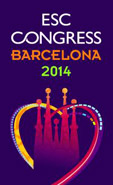HAUPTMENÜ
AWARDS
Forschergeist gefragt: 14. Novartis Oppenheim-Förderpreis für MS-Forschung ausgelobt
FernstudiumCheck Award: Deutschlands beliebteste Fernhochschule bleibt die SRH Fernhochschule
Vergabe der Wissenschaftspreise der Deutschen Hochdruckliga und der Deutschen Hypertoniestiftung
Den Patientenwillen auf der Intensivstation im Blick: Dr. Anna-Henrikje Seidlein…
Wissenschaft mit Auszeichnung: Herausragende Nachwuchsforscher auf der Jahrestagung der Deutschen…
VERANSTALTUNGEN
Wichtigster Kongress für Lungen- und Beatmungsmedizin ist erfolgreich gestartet
Virtuelle DGHO-Frühjahrstagungsreihe am 22.03. / 29.03. / 26.04.2023: Herausforderungen in…
Pneumologie-Kongress vom 29. März bis 1. April im Congress Center…
Die Hot Topics der Hirnforschung auf dem DGKN-Kongress für Klinische…
Deutscher Schmerz- und Palliativtag 2023 startet am 14.3.
DOC-CHECK LOGIN
 Drinking tea reduces non-CV mortality by 24 percent
Drinking tea reduces non-CV mortality by 24 percent
Barcelona, Spain (August 31, 2014) – Drinking tea reduces non-cardiovascular mortality by 24%, reveals a study in 131 000 people presented at ESC Congress today by Professor Nicolas Danchin from France. Professor Danchin said: "If you have to choose between tea or coffee it’s probably better to drink tea. Coffee and tea are important components of our way of life. Their effects on cardiovascular (CV) health have been investigated in the past with sometimes divergent results. We investigated the effects of coffee and tea on CV mortality and non-CV mortality in a large French population at low risk of cardiovascular diseases."
The study included 131 401 people aged 18 to 95 years who had a health check up at the Paris IPC Preventive Medicine Center between January 2001 and December 2008. During a mean 3.5 years follow up there were 95 deaths from CV and 632 deaths from non-CV causes. Coffee or tea consumption was assessed by a self-administered questionnaire as one of three classes: none, 1 to 4, or more than 4 cups per day.
The researchers found that coffee drinkers had a higher CV risk profile than non-drinkers, particularly for smoking. The percentage of current smokers was 17% for non-drinkers compared with 31% in those who drank 1 to 4 cups per day and 57% in those who drank more than 4 cups per day.
Non-coffee drinkers were more physically active, with 45% having a good level of physical activity compared to 41% of the heavy coffee drinkers. Professor Danchin said: "This is highly significant in our large population."
Heavy drinkers of coffee were older than the non-drinkers, with a mean age of 44 compared to 40 years. The differences in blood pressure were small, with heavy coffee drinkers having a slightly lower systolic blood pressure (SBP) and higher diastolic blood pressure (DBP) compared to non-drinkers when adjusted for age.
Tea drinkers had the reverse profile of coffee drinkers, with consumers having a better CV risk profile than non-consumers. One-third (34%) of the non-drinkers of tea were current smokers compared to 24% of those who drank 1-4 cups per day and 29% of those who drank more than 4 cups. Physical activity increased with the number of cups of tea per day from 43% in the moderate tea drinkers to 46% in the heavy drinkers.
Tea had a more marked effect on blood pressure than coffee, with a 4-5 mmHg decrease in SBP and 3 mmHg decrease in DBP in the heavy tea drinkers, compared to non-drinkers, when adjusted for age.
Professor Danchin said: "Overall we tend to have a higher risk profile for coffee drinkers and a lower risk profile for tea drinkers. We also found big differences with gender. Men tend to drink coffee much more than women, while women tend to drink more tea than men."
Coffee showed a trend for increasing CV mortality in the heavy compared to non-drinkers but the effect was not significant. Coffee significantly increased non-CV mortality but the increased risk disappeared when the effect was adjusted for smoking. Professor Danchin said: "The trend for higher mortality in coffee drinkers is probably largely explained by the fact that there are more smokers in the group who drink a lot of coffee."
There was a trend for tea drinking to decrease CV mortality but the effect was not quite significant after adjusting for age, gender and smoking. But tea significantly lowered the risk of non-CV death, with a hazard ratio of 0.76 for tea drinkers compared with no tea at all.
Professor Danchin said: "Tea drinking lowered the risk of non-CV death by 24% and the trend towards lowering CV mortality was nearly significant. When we extended our analysis to 2011 we found that tea continued to reduce overall mortality during the 6 year period. Interestingly, most of the effect of tea on non-CV mortality was found in current or ex-smokers, while tea had a neutral effect in non-smokers."
He concluded: "Tea has antioxidants which may provide survival benefits. Tea drinkers also have healthier lifestyles so does tea drinking reflect a particular person profile or is it tea, per se, that improves outcomes – for me that remains an open question. Pending the answer to that question, I think that you could fairly honestly recommend tea drinking rather than coffee drinking and even rather than not drinking anything at all."
—
About the European Society of Cardiology
The European Society of Cardiology (ESC) represents more than 80 000 cardiology professionals across Europe and the Mediterranean. Its mission is to reduce the burden of cardiovascular disease in Europe.
ESC Congress is currently the world’s largest international congress in cardiovascular medicine. ESC Congress 2014 takes place 30 August to 3 September at the Fira Gran Via congress centre in Barcelona, Spain.
This press release accompanies a presentation at the ESC Congress 2014. The press release has been written by the investigator and edited by the ESC and does not necessarily reflect the opinion
-
REFERS TO SESSION: Novel insights into lifestyle and cardiovascular prevention http://spo.escardio.org/SessionDetails.aspx?eevtid=69&sessId=13962
-
More information available on ESC Congress 365 after the scientific session: slides and webcast when available (http://congress365.escardio.org/)
European Society of Cardiology, 31.08.2014 (tB).



